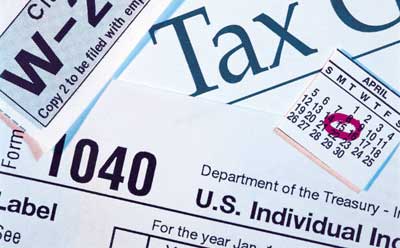by Jeffrey L. Kidder, Department of Sociology
No government can exist without monetary support from its populace, and no democratic nation can thrive without the moral support of its citizenry.
These matters are sure to be front and center as the 2012 presidential election heats up this fall. Candidates, whether they are Democratic or Republican, have to balance their vision for the nation between the fiscal necessities required to run the federal government and the economic burden this funding places on taxpayers.
As we follow the debate between candidates, it is worth reflecting on how ordinary Americans – not politicians or policy wonks, but just ordinary people – understand taxation and their personal relationship to fiscal policy.
There is a great deal of resources dedicated to measuring public opinions about taxes. Such studies, however, tend to be in the form of large-scale quantitative surveys.
In a recent article published in the journal Symbolic Interaction, Isaac Martin and I argue that such polling data cannot capture the complexity of how Americans feel about taxation.
In our research we tried to capture the more ethnographic dimensions of everyday tax talk. We did this by replicating, as much as possible, the types of discussions ordinary people have about fiscal policy in day-to-day interactions. We were particularly interested in interviewing white, Southern, small business owners – a cross-section of the population that is paradigmatically anti-taxation.
Our findings highlight how people can use tax talk as a way of asserting what sociologist Herbert Blumer called “a sense of group position.” That is, tax talk can be a symbolic way for people to proclaim their righteousness in contrast to those they believe are less deserving. Thus, our interviews were filled with abstract descriptions of people our respondents felt unjustly benefited from federal tax policies.
The poor were described as “people not trying to work” and “the ones not doing anything.” On the other hand, the rich were also maligned as undeserving. They were unflatteringly characterized as “the big guys,” “the fat cats” and “executives paying themselves millions.”
 We were conducting our interviews after the financial meltdown, at the heights of public debate about various federal stimulus and bailout policies, and the mass media helped frame our respondents’ discussions.
We were conducting our interviews after the financial meltdown, at the heights of public debate about various federal stimulus and bailout policies, and the mass media helped frame our respondents’ discussions.
The importance of our findings is in how people brought these economic issues to life in everyday discourse. In ordinary talk these matters are not really about balancing budgets and encouraging growth. They are about a moral sense of right and wrong. They are about asserting one’s belief about who should and should not be rewarded by the policies of the federal government, and it’s worth noting here that even though we attempted to engage people in talk about all forms of taxation, people generally only wanted to talk about federal income tax.
Ultimately, our respondents’ discursive use of the income tax – as a symbol of a morally illegitimate, exploitive relationship between hard-working middle-class people, and the rich and poor who exploit them – helps to illuminate why tax talk occupies such a central place in American political discourse. Among other things, it helps to illuminate what American conservatives talk about when they talk about taxes.
Fiscal debates are about more than money; they are also about the meanings people attribute to how that money is collected in the first place. The Tea Party is a vivid example. Although the rhetoric of the Tea Party concerns taxes, this is not the main policy concern of the movement. Instead, Tea Party activists use anti-tax rhetoric to position themselves symbolically as a righteous group burdened by policies they believe only benefit the rich and the poor.
Thus, when Americans lash out at “takeovers,” “massive taxes” and “bailouts,” they are locating these fiscal issues within a more general cultural narrative of a hard-working middle class besieged on all sides. In other words, their tax talk is about dollars, but it is also about sense.
Jeffrey L. Kidder is an assistant professor in the NIU Department of Sociology whose research and teaching pursuits are at the intersection of cultural and urban sociology.

